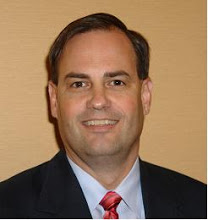Share This Article:

A recent post led me to deeper consideration of the issues surrounding the apportionment of fault. Yes, this has seemingly nothing to do with workers' compensation. And this blog is largely about workers' compensation. But it is also about the law. The recent missive is Comparative Redux (March 2023), which focused on the recent Florida change to Modified Comparative Negligence. I followed that with a post that perhaps suggests some workers' compensation relevance, The 440.39 Lien and Limitation (April 2023). That one
The posts led me to run a survey on LinkedIn, something I had not tried before. I thought that the results might be skewed in one direction or the other. In fact, I was expecting a skew toward pure comparative. I was somewhat surprised when the three options received reasonably similar votes (this is a non-scientific poll on social media). The option with the most respondents was Pure Comparative. And, that is perhaps driven by familiarity? I have spoken to several people since Redux who told me that they did not know of Modified until reading that post.

For clarity, the title of this post is "Which is Preferred?" But the poll is "Which is best." Not the same thing at all, but I suspect that we each prefer what we perceive as "best?" This may be a perspective issue.
One participant noted "I'm a big fan of contributory." The critical element there is seemingly simplicity. "There's not a lot of room for ambiguity." There is merit to simple systems. Another commenter said that the change may lead to unexpected decreases in the fault apportioned to plaintiffs: "when a jury hears 51% liability on plaintiff will bar recovery they may be more reluctant to allocate 70-90% to plaintiff." Thus, there is perhaps potential for greater recoveries by plaintiffs due to the structure of the law.
For example, if damages are $100,000 and the jury is asked to apportion fault in Pure Comparative, they might conclude that 90% is the plaintiff's fault and still award $10,000. But, the commenter suggests that if the jury knows the plaintiff will get nothing with such a finding it may instead be drawn by sympathy to ignore the 90% and instead conclude assigning the plaintiff 49% and the verdict will be $51,000 instead of the $10,000 suggested in Pure.
It is intriguing that only four states (8%), Alabama, Maryland, North Carolina, and Virginia are "Pure Contributory" negligence states. See Bloomberg comparison chart and map. And despite that clear minority position, thirty percent of respondents in my unscientific poll favored that system.
The same surprise might be expressed regarding the opposite, the "Pure Comparative." Only 9 states (18%) still subscribe to this: Alaska, Arizona, California, Kentucky, Louisiana, New Mexico, New York, Rhode Island, and Washington. And yet, 39% percent of the respondents in my poll favored that.
The vast majority of the states are using Modified Comparative Negligence, thirty-seven states (74%). Despite that overwhelming majority, Modified Comparative garnered only 30% in the poll. These outcomes caused me to wonder how many people are in the various category states.
According to WorldPopulation.com, the U.S. population in 2023 is 333,868,745. The four Contributory states include 30,795,390, or about 9% of the population. So roughly nine percent of Americans live under that paradigm. The 9 Pure Comparative states (18%) include 84,591,729, roughly 25% of the population. The 37 Pure Comparative states (74%) include 218,481,626, roughly 65% of the population.
Perhaps the lack of congruity is surprising. The three theories or paradigms are reasonably similar in the preference poll (strictly unscientific). And yet there is a very clear prevalence of Modified Comparative both by volume of states (74%) and population (65%). Similarly, the very small presence of Pure Contributory states (8%) and population (9%), garnered a notable response in the poll.
In the end, this perhaps only suggests the flaw in a poll. However, the state and population figures are clearly demonstrative of a significant preference for the Modified Comparative standard. There is the suggestion that its application could lead to unintended outcomes, noted by one commenter. But, overall, it is expected by many to impact case filings and litigation outcomes in Florida.
By Judge David Langham
Courtesy of Florida Workers' Comp
california case management case management focus claims compensability compliance courts covid do you know the rule emotions exclusive remedy florida FMLA fraud glossary check Healthcare health care hr homeroom insurance insurers iowa leadership medical NCCI new jersey new york ohio osha pennsylvania roadmap Safety state info technology texas violence WDYT west virginia what do you think women's history women's history month workcompcollege workers' comp 101 workers' recovery Workplace Safety Workplace Violence
Read Also
About The Author
About The Author
-
Judge David Langham
David Langham is the Deputy Chief Judge of Compensation Claims for the Florida Office of Judges of Compensation Claims at the Division of Administrative Hearings. He has been involved in workers’ compensation for over 25 years as an attorney, an adjudicator, and administrator. He has delivered hundreds of professional lectures, published numerous articles on workers’ compensation in a variety of publications, and is a frequent blogger on Florida Workers’ Compensation Adjudication. David is a founding director of the National Association of Workers’ Compensation Judiciary and the Professional Mediation Institute, and is involved in the Southern Association of Workers’ Compensation Administrators (SAWCA) and the International Association of Industrial Accident Boards and Commissions (IAIABC). He is a vocal advocate of leveraging technology and modernizing the dispute resolution processes of workers’ compensation.
More by This Author
- Jun 05, 2023
- Judge David Langham
- May 20, 2023
- Judge David Langham
Read More
- Apr 03, 2025
- Shawn Deane
- Apr 01, 2025
- NCCI
- Mar 30, 2025
- Kim Radcliffe
- Mar 29, 2025
- Natalie Torres
- Mar 19, 2025
- NCCI
- Mar 16, 2025
- Derek Goff




